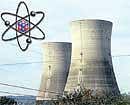
The companies removed from the export control list for sensitive items, which triggers export-licence requirements on goods that normally don't require a licence, include subsidiaries of Defence Research and Development Organisation (DRDO) and Indian Space Research Organisation (ISRO).
The restrictions have been in place since India tested nuclear weapons in 1998. The move by the commerce department described as the "first steps" to implement the export control policy initiatives announced by Obama and Prime Minister Manmohan Singh Nov 8 comes ahead of a visit to New Delhi Feb 6 of Commerce Secretary Gary Locke, who is leading 24 US businesses on a high-tech trade mission to India.
"Today's action marks a significant milestone in reinforcing the US-India strategic partnership and moving forward with export-control reforms that will facilitate high-technology trade and cooperation," Locke said in a statement.
"The perception of onerous US export controls certainly has been a hindrance to high-technology trade over the years," a US administration official told reporters on a conference call. "So our goal was to remove India from the categories within those dual-use regulations that connote countries as proliferation concerns." Two major changes, which will go into effect Tuesday, will begin the process of putting export controls for India "on a normalised footing", the official said.
In addition, regarding the licensing of so-called dual-use goods that can be used for either civilian or military purposes, India is no longer being treated as a "country of concern" regarding proliferation of nuclear, chemical or biological weapons. Among the companies on the US delegation to India are aerospace giants like Boeing and Lockheed Martin. Boeing was a major beneficiary of Obama's trip, accounting for several billion dollars worth of the nearly $15 billion in business sales that were announced.
"Some of those on the delegation will be very interested in these announcements," the administration official said. But he stressed that the controls are being eased "to strengthen the non-proliferation regime, not just to strengthen trade with India".
The US will continue to work with the Indian government to remove some remaining unilateral restrictions this year, the official said. It is also supporting India's efforts to join four multilateral export-control regimes, which will require the country to revise its own export restrictions. Following up on exemptions long sought by India, the US commerce department's Bureau of Industry and Security Monday published a Federal Register Notice which updates the Export Administration Regulations (EAR) relating to India in several ways.
Among them:
* Removing several Indian space- and defence-related companies from the Entity List. Removal from the Entity List eliminates a licence requirement specific to the companies, and results in the removed companies being treated the same way as any other destination in India for export licensing purposes.
* Removing India from several country groups in the EAR resulting in the removal of export licence requirements that were tied to India's placement in those country groups.
* Adding India to a country group in the EAR that consists of members of the Missile Technology Control Regime, to recognize and communicate India's adherence to the regime, the US-India strategic partnership, and India's global non-proliferation standing.